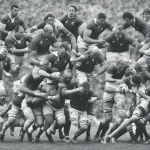The age-old debate continues to stir up conversations amongst educators, parents, and students. Is there a relationship between a student’s participation in sports and their academic performance? Undoubtedly, this question has kept the Google Scholar search bar buzzing with queries, as researchers from across the globe delve into the crossref of sports and academics. This article aims to unravel the intriguing intersection of sports and academic achievement. We will explore the influence of sports on students’ educational prowess, and how these two seemingly different fields may be more interconnected than we think.
The Association Between Sports Participation and Academic Achievement
Before we jump headfirst into the controversial waters of sports and academic performance, it’s important to understand the basic premise of this association. The literature available on Pubmed, PMC, and DOI suggests that sports participation can positively impact students’ academic performance. But how does this work?
A voir aussi : How can real estate developers create spaces that foster creativity and innovation in tech hubs?
Let’s start with the fundamental fact that physical activity is beneficial for children’s overall development. It improves their physical health, boosts their self-confidence, and provides them with an excellent platform to learn teamwork, leadership, and other essential life skills. However, the effects of sports participation extend beyond the physical realm, seeping into the academic sphere as well.
Research has shown that students who regularly participate in sports often fare better academically compared to their non-athlete peers. This connection is attributed to the discipline, determination, and time management skills that sports foster in students. These are qualities that translate well into the academic arena, helping students manage their school work more effectively. Moreover, studies have indicated that sports participation can improve cognitive functions such as attention, memory, and problem-solving, which are vital for academic success.
Dans le meme genre : How to Ensure Proper Nutrition for a Herbivorous Reptile Pet
Delving Deeper: The Role of Sports in Academic Performance
To comprehend the impact of sports on academic performance, let’s take a closer look at some research findings. One study published on Google Scholar explored the relationship between physical activity and academic performance in children and adolescents. The results revealed a positive correlation, marking a significant point for sports enthusiasts.
This study, among others, has shown that sports participation aids in the development of brain function. Regular exercise increases blood flow to the brain, leading to better concentration and improved memory – two factors crucial for academic success. Additionally, physical activity has been linked to higher levels of serotonin in the brain, which enhances mood and alleviates stress, thus creating a more conducive environment for learning and studying.
Aside from physiological benefits, sports participation also promotes psychological and social development. Students involved in sports learn valuable skills like discipline, perseverance, and teamwork, which translate into their academic life. They learn to balance their time between sports and school work, leading to improved organizational skills. These students also tend to have better attendance records, lower dropout rates, and higher aspirations for their educational future.
The Impact of Sports on Students’ Attitude Towards School
It’s noteworthy to discuss how sports participation can influence students’ attitudes towards school. Engaging in sports can make students feel more connected to their school community, enhancing their overall school experience.
It’s been found that students who participate in sports have more positive attitudes towards school compared to those who don’t. They exhibit a stronger sense of school pride and are generally more enthusiastic about their educational journey. This enhanced school spirit is associated with increased motivation to do well acadically, thereby leading to better academic outcomes.
Furthermore, sports participation has been shown to increase students’ self-esteem and self-confidence. These positive self-perceptions can lead to a more constructive mindset towards learning and academics, contributing to improved academic performance.
A Closer Look at Academic Achievement in Student Athletes
Let’s take a closer look at the academic achievements of student athletes. Research available on Pubmed and PMC has shown that student athletes often exhibit higher grade point averages (GPAs), better attendance, and lower dropout rates compared to non-athletes.
For instance, a study conducted by the Department of Education in the United States revealed that high school athletes had a significantly higher mean GPA compared to non-athletes. Furthermore, student athletes were found to have a better attitude towards school and higher educational aspirations.
These findings underscore the potential benefits of sports participation for academic achievement. The skills and habits developed by athletes – discipline, time management, resilience, and teamwork – are all transferable to the classroom setting, making them more successful in their studies.
While it’s crucial not to downplay the challenges student athletes face – such as the pressure to balance academics and sports, potential injuries, and stress – these obstacles can ultimately contribute to building a resilient character. This resilience can not only help athletes excel in sports but also in their academic pursuits.
As we delve into this fascinating crossroad of sports and academics, it’s evident that there’s more to sports participation than meets the eye. While the physical benefits are widely known, the impact on students’ academic performance is an area that’s equally important and intriguing. As educators, parents, and students continue their quest to strike the perfect balance between sports and academics, it’s clear that encouraging sports participation can play a pivotal role in shaping students’ academic success.
Sports Participation: A Buffer Against Negative Academic Outcomes
Shifting our focus from the positive outcomes of sports participation, it’s essential to shed light on its role as a protective factor against negative academic outcomes. It’s no secret that the high school years can present numerous challenges, including academic pressure, social angst, and the onset of mental health issues like depression and anxiety. These factors, if not addressed, can lead to detrimental academic outcomes such as low grades, chronic absenteeism, and high dropout rates.
A growing body of research available on platforms such as Google Scholar, Pubmed, and Crossref Google has shown that sports participation can serve as a buffer against these negative outcomes. By providing students with a supportive community and a healthy outlet for stress, sports can help them navigate the turbulent high school years with greater resilience.
In a study available on DOI Pubmed, researchers found that high school students who participated in sports had lower dropout rates compared to their non-athlete peers. The findings suggest that the engagement and sense of belonging that sports participation fosters can keep students anchored to their academic pursuits, even when faced with challenges.
Moreover, sports participation has been linked to lower rates of depression and anxiety among high school students. The physical activity involved in sports triggers the release of endorphins, chemicals in the brain that act as natural mood enhancers. This explains why student athletes often report lower levels of stress and a more positive mood compared to non-athletes, creating a more conducive mindset for academic success.
In Conclusion: Unraveling the Sports-Academic Nexus
As this article demonstrates, there is significant evidence supporting the positive impact of sports participation on academic performance. The physiological benefits of physical activity, the acquisition of essential life skills, the boost in self-confidence, and the sense of community that sports offer can all contribute to improved academic achievement.
By promoting discipline, time management, teamwork, and resilience, sports participation equips students with skills that are not only essential in the classroom but also in life beyond school. It’s clear that sports and academics are not mutually exclusive fields, but rather interconnected realms that can enhance each other in a synergistic manner.
However, while the benefits are significant, it’s important for educators and parents to remember that each student is unique, with diverse interests and abilities. Therefore, while encouraging sports participation, it’s equally crucial to ensure that students are not coerced into sports at the expense of their other interests. The goal should be to strike a balance that allows students to explore their athletic abilities while also thriving academically.
In conclusion, while it’s undeniable that sports participation can be a potent tool for enhancing academic performance, it’s the synergy of sports and academics, underpinned by a balanced and inclusive approach, that holds the key to developing well-rounded, successful individuals. As we continue to explore the intriguing crossroad of sports and academics, it’s clear that the fusion of these two fields is a game-changer in the realm of education.










